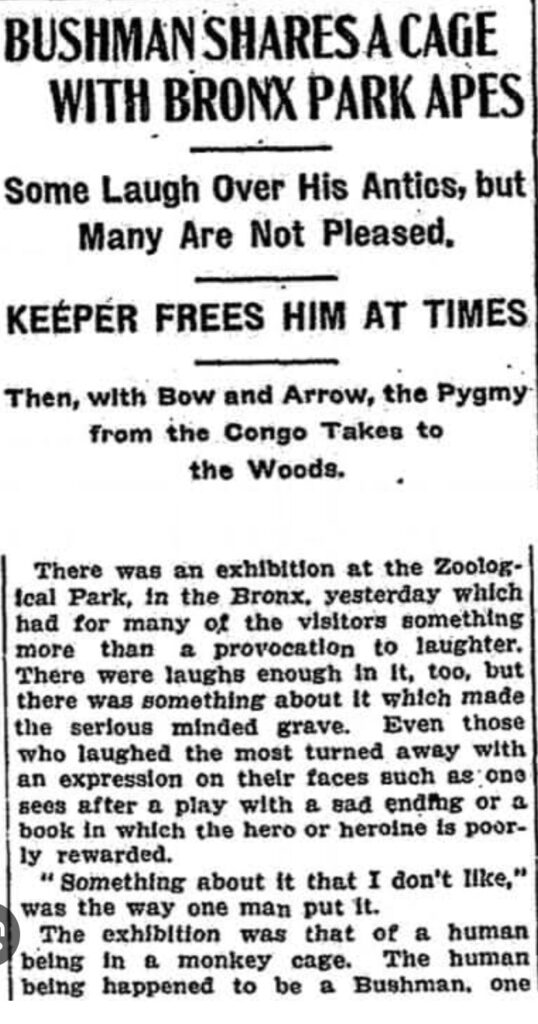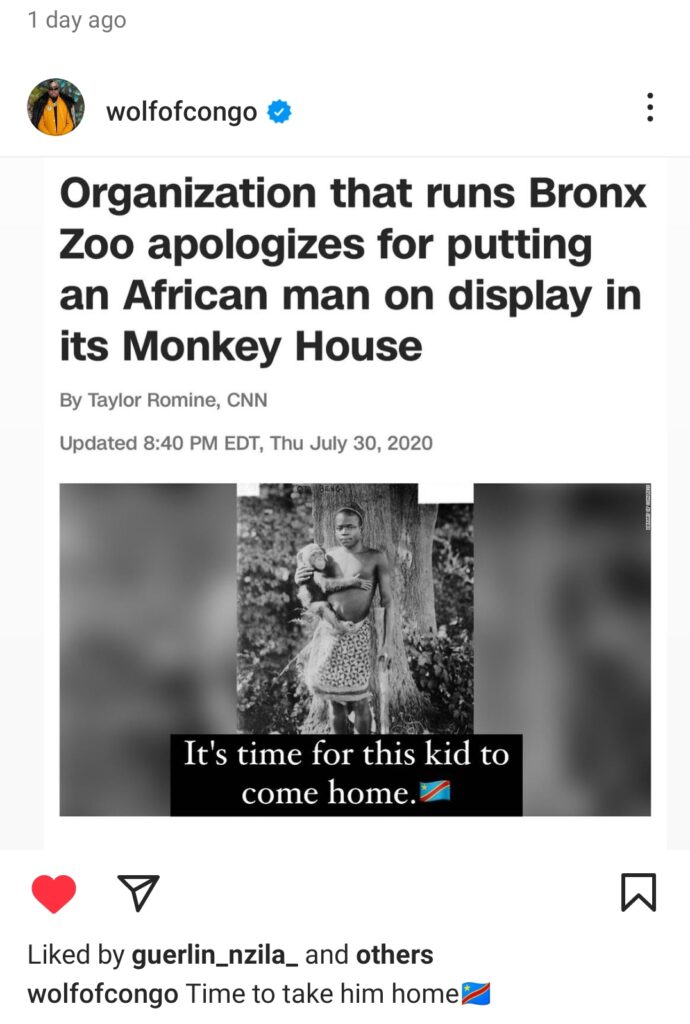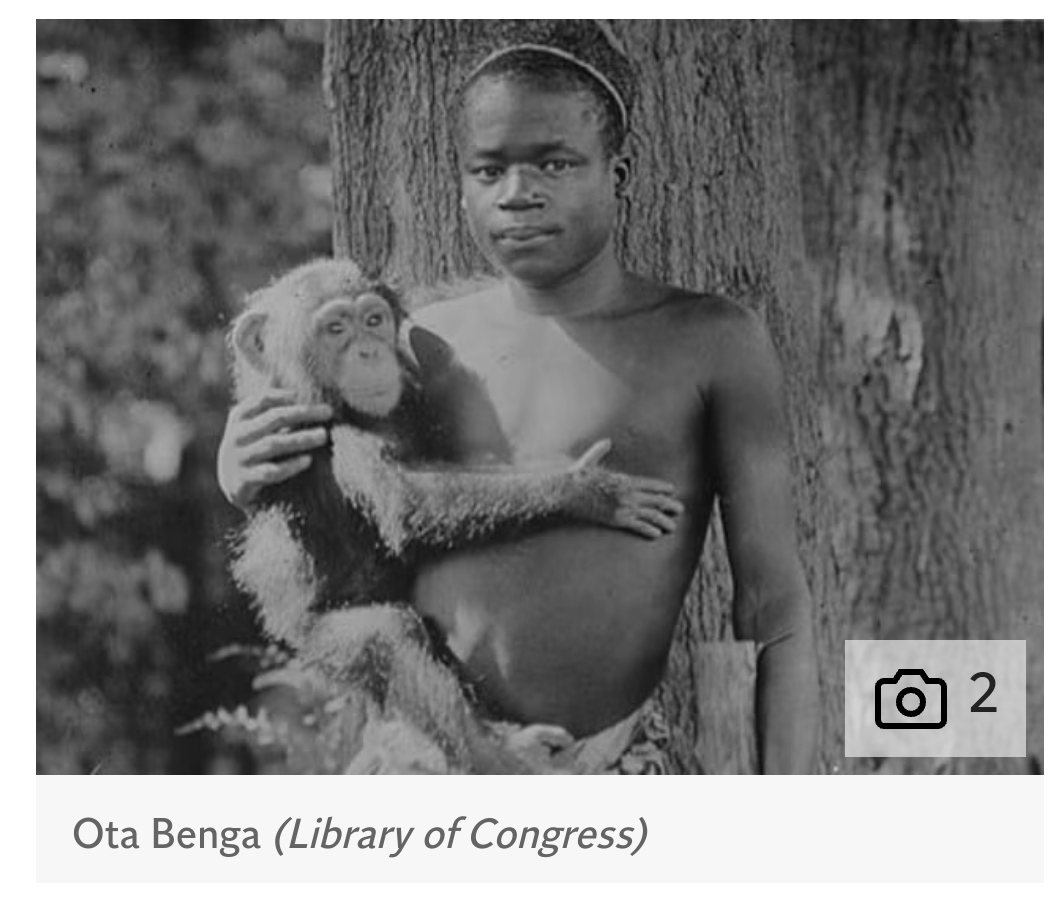The King of Bapindi Kingdom in DR Congo, Kufulula Arnold popularly known as Wolf of Congo, has called for the repatriation of the remains of Ota Benga, a Congolese man who was enslaved and exhibited in a human zoo in the United States in 1906.
Ota Benga from the Mbuti people of present-day Democratic Republic of Congo, was brought to the United States by the explorer Samuel Verner, who displayed him at the 1904 World’s Fair in St. Louis.
After the fair, Benga was taken to the Bronx Zoo in New York City, where he was exhibited alongside monkeys and other animals in a cage.

While imprisoned at the Zoo, Benga underwent inhumane conditions, according to Pamela Newkirk, the author of “Spectacle: The Astonishing Life of Ota Benga.” Newkirk, who also wrote a CNN opinion article about Benga’s imprisonment, said he often faced hundreds of people at a time while trapped inside an iron cage with an orangutan.
He would only have short periods of time outside. After a week, Benga started to resist and threaten attendants, which contributed to his release, Newkirk wrote in her op-ed.
Benga’s captivity sparked outrage among African American and human rights activists, who campaigned for his release.
Eventually, Benga was released into the custody of African American ministers led by Reverend James Gordon who took him in at an orphanage he ran in Weeksville, Brooklyn.
He however struggled to adapt to life in the United States and eventually committed suicide in 1916.
Now, over a century later, the Wolf of Congo is calling for Benga’s remains to be repatriated to his homeland.
In a post on his Instagram page the Wolf of Congo said, “Ota Benga was a victim of colonialism and racism, and his remains should be returned to his home country as a symbol of our struggle for justice and equality.”. …”it’s time for this kid to return home”….

The call for Benga’s repatriation has sparked renewed interest in his story and in the history of colonialism and racism in the United States. It remains to be seen whether the call will be heeded, but the Wolf of Congo’s activism has already brought attention to an important and often overlooked chapter in the history of human rights.
Belated Apology by Bronx Zoo
The Wildlife Conservation Society (WCS) issued a statement on June 20, 2020 formally apologizing for the imprisonment and display of Ota Benga at the Bronx Zoo.
“We deeply regret that many people and generations have been hurt by these actions or by our failure previously to publicly condemn and denounce them,” WCS President and CEO Cristián Samper wrote.
“We recognize that overt and systemic racism persists, and our institution must play a greater role to confront it.”
Benga, who was from the Mbuti people of present-day Democratic Republic of Congo, was put on display at the zoo’s Monkey House for several days during the week of September 8th, 1906, according to the statement. He was released after local Black ministers expressed their outrage and demanded his freedom.
The organization also denounced “the eugenics-based, pseudoscientific racism, writings, and philosophies” that were advanced by two of its founders, Madison Grant and Henry Fairfield Osborn, Sr.
Grant’s book, “The Passing of the Great Race,” was used as a defense during the Nuremberg trials. Grant and Osborn also helped found the American Eugenics Society in 1926, according to the statement.





